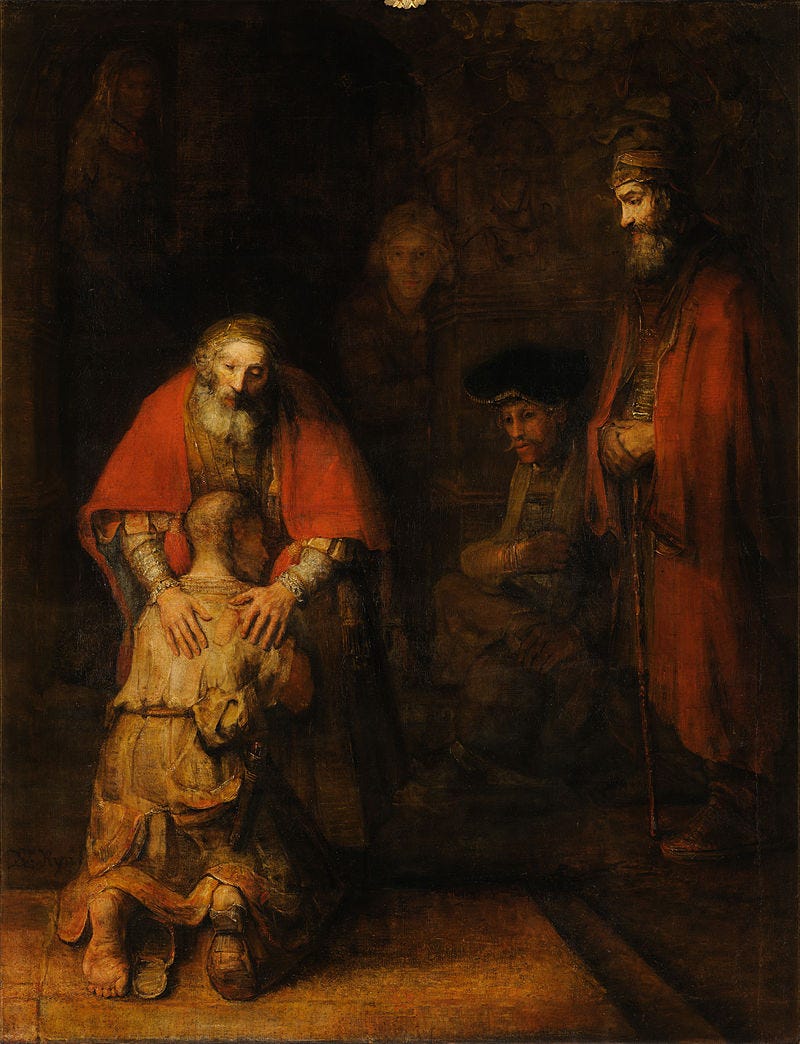We have reached the apex of Advent! The first two weeks, Hope and Peace, definitionally remind us that we live in a broken world. Though both Peace and Hope can exist by themselves (and do, in Christ) without brokenness, we most often think about these things in contrast to the despair or chaos of the world around us.
Week three of Advent, Joy, marks the turning point. Joy is the peak of our experience in God, and what most foundationally describes the Christian experience. I’ve heard “joy is not happiness” a million times but it begs the question: “What is joy?”
This is where C.S. Lewis is helpful.
Lewis titled his autobiography Surprised by Joy partly because it described his conversion experience. A staunch atheist beginning in his teens and into his early thirties, he struggled with the sense that he possessed a desire for some desire that the world could not sate. After wrestling with this, he came to the conclusion that the only solution was God. This conclusion was not initially a happy one - this is how Lewis describes his conversion experience in Surprised by Joy:
“You must picture me alone in that room in Magdalen, night after night, feeling, whenever my mind lifted even for a second from my work, the steady, unrelenting approach of Him whom I so earnestly desired not to meet. That which I greatly feared had at last come upon me. In the Trinity Term of 1929 I gave in, and admitted that God was God, and knelt and prayed: perhaps, that night, the most dejected and reluctant convert in all England. I did not then see what is now the most shining and obvious thing; the Divine humility which will accept a convert even on such terms. The Prodigal Son at least walked home on his own feet. But who can duly adore that Love which will open the high gates to a prodigal who is brought in kicking, struggling, resentful, and darting his eyes in every direction for a chance of escape? The words “compelle intrare,” compel them to come in, have been so abused by wicked men that we shudder at them; but, properly understood, they plumb the depth of the Divine mercy. The hardness of God is kinder than the softness of men, and His compulsion is our liberation.”
Kicking or struggling, Lewis felt himself compelled and obeyed that compulsion, though it was initially not a “happy” one. Lewis went on to characterize his walk with God as one of intense Joy, which he defined as
“an unsatisfied desire which is itself more desirable than any other satisfaction.”
It’s sticky definition that is initially difficult to wrap one’s head around. But once you turn those words around in you mind a bit, you get the sense that Lewis is on to something. Joy, in this sense, is longing. A longing that is more desirable than the fleeting satisfaction of a good bottle of wine with friends, a peaceful walk in the woods, or a beautiful piece of music.
Indeed, each of those things can point us to the greater longing we have for Christ - though a warm dinner with friends will end, it points us to the safe fellowship we have in Christ and will one day experience physically. A walk in the woods eventually becomes chilly, but reminds us of the power of the Creator that underlies creation. Music, for me, helps to point towards the transcendent nature of God’s beauty.
But even were we to have none of these things - were our life to be devoid of any temporal or typological indicator of the greater Joy to be found in Christ, we can look to Rembrandt’s Prodigal Son to see what Joy looks like. Rembrandt’s depiction of Jesus’ famous parable shows us what Joy as defined by Lewis looks like.
The prodigal son has returned to the father, and as the father looks down at the ragged son he bears an expression not of anger or disappointment, but rather of unadulterated love. The scene is bathed in a wash of warm light, as the other elements of the painting recede into the dim background. Nothing else matters but what is happening between the father and son.
We have Joy in the fact that we have been forgiven, washed, and received by the Father, no matter the state we are in or the way we eventually come around to him. We can take comfort and Joy in the taste we receive on this side of heaven, as we long for eternity when we will be with the One who loves us.



